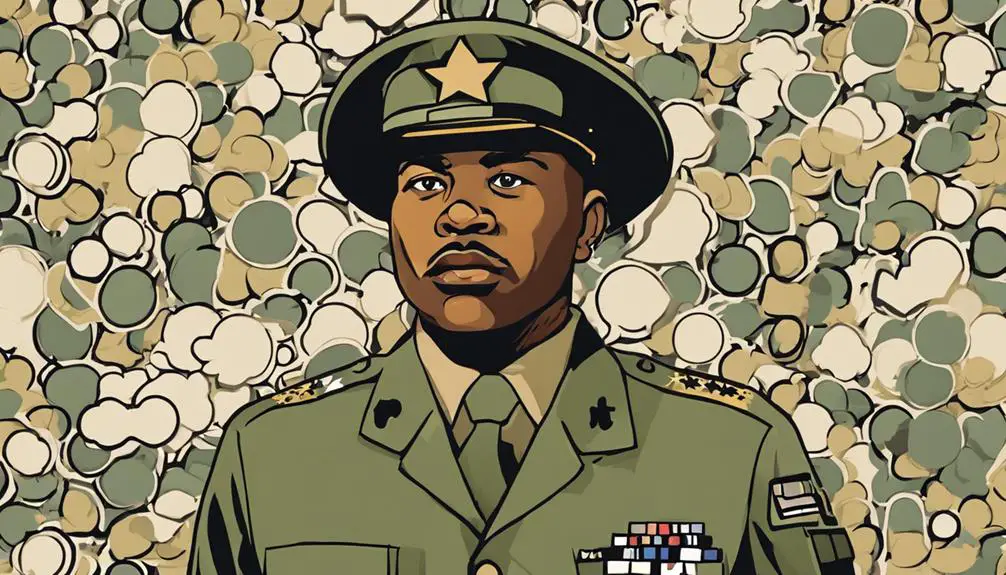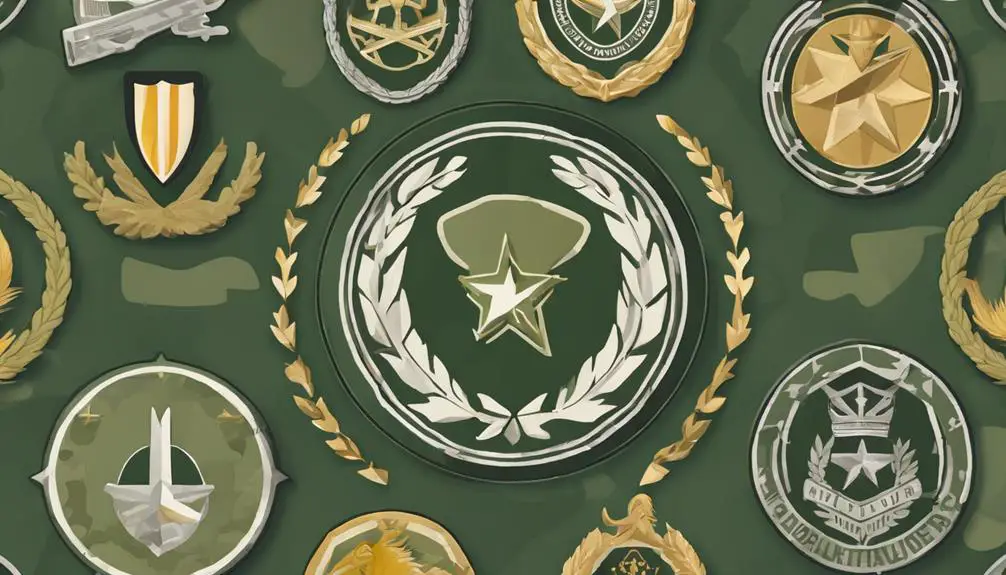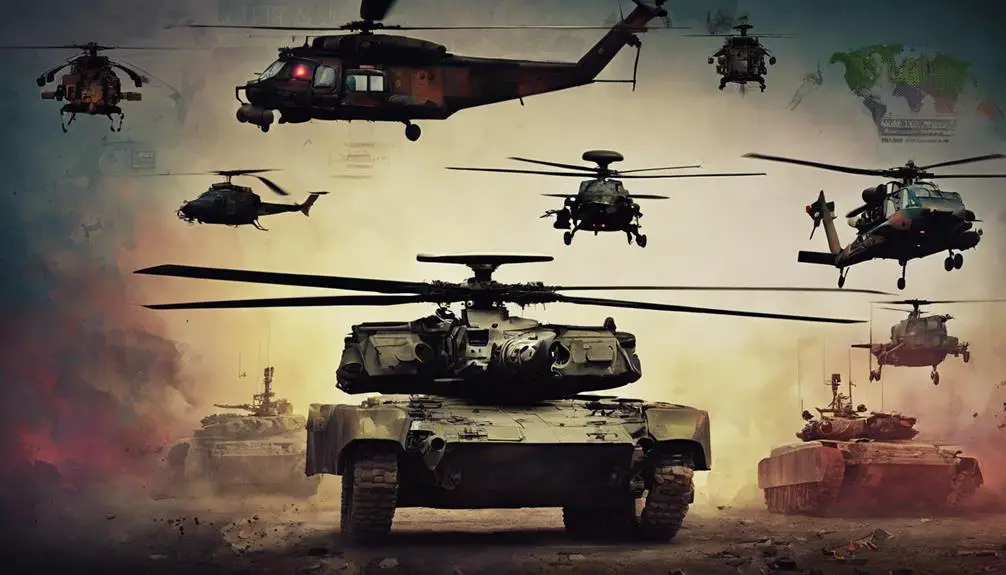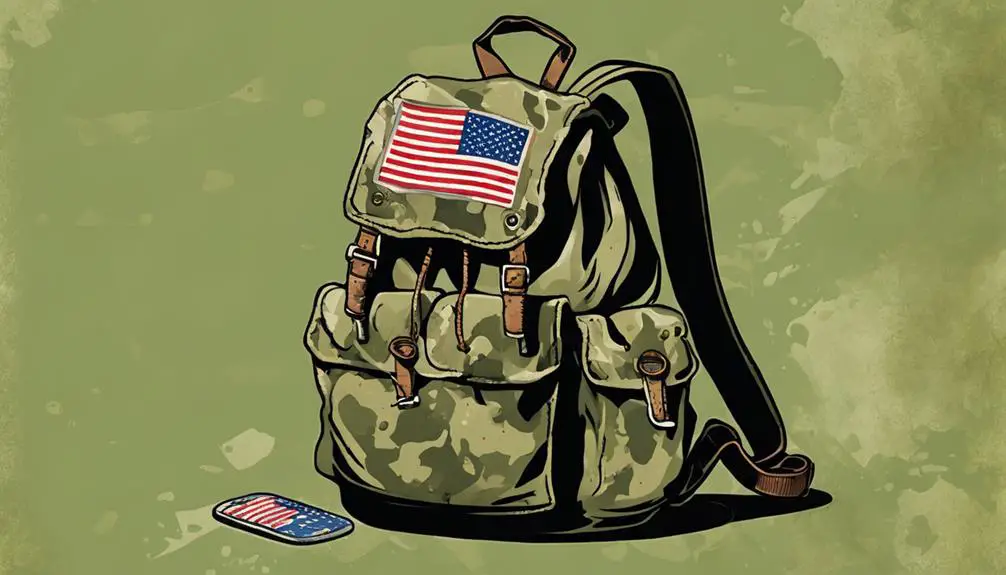When you step into the military, you'll quickly discover that the Army has its own language, complete with unique phrases, acronyms, and slang that can be overwhelming for new recruits. You'll need to learn essential phrases like "Attention!" and "Roger that," as well as slang for military operations like "Op Tempo" and "AO." You'll also need to know lingo for ranks and roles, like addressing officers with "Sir" or "Ma'am." Emotional expressions like "Hooah!" and "FUBAR" will become part of your vocabulary. As you become more familiar with Army slang, you'll realize there's much more to learn about the language of the military.
Essential Phrases for New Recruits

As you step into the boots of a new recruit, you'll need to quickly learn these essential phrases to navigate the military's unique language and avoid confusion.
Mastering these basic phrases will help you adjust to the Military Mindset and thrive in Boot Camp Basics.
First, familiarize yourself with common commands like 'Attention!' (stand at attention), 'At ease!' (relax, but remain standing), and 'Fall out!' (dismissal).
You'll also hear 'Hooah!' (an expression of enthusiasm or motivation) and 'Oorah!' (a Marine Corps battle cry).
Understand that 'SITREP' refers to a situation report, while 'ROE' stands for Rules of Engagement. Knowing these terms will help you understand instructions and complete tasks efficiently.
Additionally, be prepared to use 'Roger that' (affirmation) and 'Wilco' (will comply) to acknowledge orders.
Slang for Military Operations
When you're deployed, you'll need to be familiar with military slang to effectively communicate with your unit during operations. For example, referring to a mission as an 'op' or a difficult situation as a 'cluster'. Understanding these terms will help you navigate the complexities of military operations.
In the combat zone, you'll need to adapt quickly to the fast-paced environment. Here are some essential slang terms to know:
- Op Tempo: The rate at which operations are conducted, which can impact your unit's workload and pace.
- SITREP: A situation report, which provides an update on the current state of operations.
- COMMS: Communications, which are critical for coordination and success in military operations.
- AO: Area of Operations, which defines the geographic boundaries of your mission.
Mastering these terms will help you stay focused on the mission and avoid confusion in high-pressure situations.
Lingo for Ranks and Roles

You'll quickly learn that military ranks and roles have their own distinct lingo, essential for clear communication and respect within the chain of command. Understanding the nuances of rank-specific terminology is vital for effective collaboration and avoiding misunderstandings.
Here's a breakdown of common terms used to address military personnel:
| Rank/Role | Lingo |
|---|---|
| Officer | 'Sir' or 'Ma'am' ( Officer etiquette) |
| Non-Commissioned Officer (NCO) | 'Sergeant' or 'Staff Sergeant' |
| Enlisted Personnel | 'Private' or 'Specialist' (Enlisted expectations) |
| Platoon Leader | 'Lieutenant' or 'PL' |
| Squad Leader | 'Sergeant' or 'SL' |
Mastering these terms will help you navigate the military hierarchy with confidence. Remember, using the correct terminology demonstrates respect for your fellow service members and their positions. By adopting this lingo, you'll become an integral part of the military community, where clear communication is paramount.
Expressions for Emotions and Frustrations
How do you express frustration when the mission objective changes unexpectedly, or excitement when your team achieves a hard-won victory? In the military, you'll often hear unique phrases that convey emotions and frustrations. These expressions are essential for venting frustration and bonding with fellow soldiers.
Here are some common expressions you might hear:
- Hooah (pronounced 'hoo-ah'): an expression of excitement, approval, or motivation
- Oorah (pronounced 'oo-rah'): a Marine Corps expression similar to 'Hooah'
- FUBAR (Fouled Up Beyond All Recognition): a phrase describing a situation that's completely messed up
- Burnout phrases like 'I'm done' or 'I'm tapped out' signal emotional exhaustion, indicating it's time to take a break
These phrases help you communicate emotions and frustrations in a way that's relatable and authentic. By using these expressions, you'll be able to connect with your fellow soldiers and vent frustrations in a way that's unique to the military experience.
Acronyms for Military Equipment

From rifles to radar systems, military personnel rely on a plethora of equipment to accomplish their missions, and understanding the acronyms associated with this gear is essential for effective communication and efficient operations.
As a service member, you'll encounter a range of acronyms that identify specific equipment, systems, and technologies. For instance, you'll come across radar systems like AWACS (Airborne Warning and Control System) or GRC (Ground Radar Console), which play critical roles in surveillance and communication.
You'll also encounter communication codes like COMSEC (Communications Security) or SIGINT (Signals Intelligence), which guarantee secure transmission of sensitive information. Familiarizing yourself with these acronyms will help you navigate complex military operations and stay on the same page as your comrades.
Frequently Asked Questions
How Do I Get Used to the Early Morning Wake-Up Calls?
You're struggling to adjust to early morning wake-up calls. To get used to them, establish a consistent morning routine, like exercising or meditating, to train your brain to associate waking up with positivity.
Implement sleep strategies like maintaining a consistent sleep schedule, creating a relaxing bedtime routine, and avoiding screens before bed.
Gradually adjust your wake-up time to ease into the new routine, and you'll be rising with the sun in no time!
What if I Forget My Military ID at Home?
You're stuck between a rock and a hard place, feeling like you're drowning in a sea of forgottenness.
If you forget your military ID at home, don't panic. You won't be left high and dry. You can use alternative forms of identification, such as your Common Access Card or a driver's license.
If you've lost your credentials, report it to your supervisor immediately. They'll guide you through the process of obtaining a replacement.
Can I Use My Personal Phone During Deployment?
While deployed, you'll need to follow strict phone etiquette to maintain combat communication security. You're allowed to bring a personal phone, but its use will be limited and heavily monitored.
You'll be briefed on specific guidelines, but expect restrictions on social media, photo sharing, and voice calls. Remember, your phone is a privilege, not a right, during deployment. Use it wisely to avoid compromising operational security.
Are There Any Rules for Having a Romantic Relationship in the Military?
Did you know that approximately 20% of military personnel are married to another service member?
When it comes to romantic relationships in the military, you'll need to navigate fraternization policies. These rules vary by branch, but generally, they prohibit relationships between officers and enlisted personnel, as well as those in a direct chain of command.
As a military couple, you'll need to make sure your relationship doesn't compromise your duties or create a conflict of interest.
How Long Does It Take to Get Adjusted to Military Food?
You'll likely take a few weeks to adjust to the military's unique food culture. At first, the chow hall's institutional fare might be a shock. But, with some meal hacks, you'll find ways to make it work.
Try exploring different stations, like the salad bar or sandwich shop, to mix things up. Don't be afraid to ask fellow service members for tips – they've been in your boots before!
Conclusion
You've mastered the lingo, and now you're ready to deploy. Remember, in the military, communication is key, and speaking the language is essential. You've learned the essential phrases, military operation slang, ranks and roles lingo, emotional expressions, and equipment acronyms.
Now, put it all into practice and stay sharp. As you serve, keep in mind that clear communication saves lives, builds trust, and gets the mission done. Stay vigilant, soldier!







